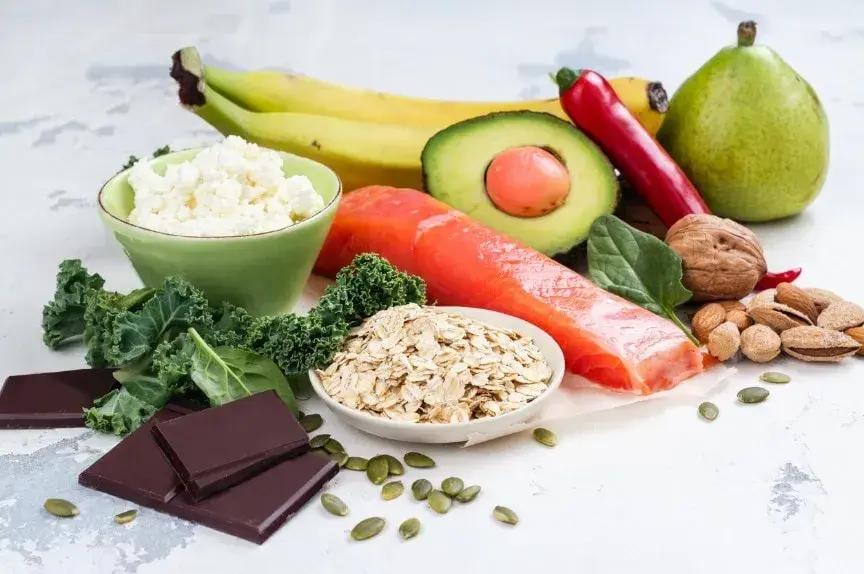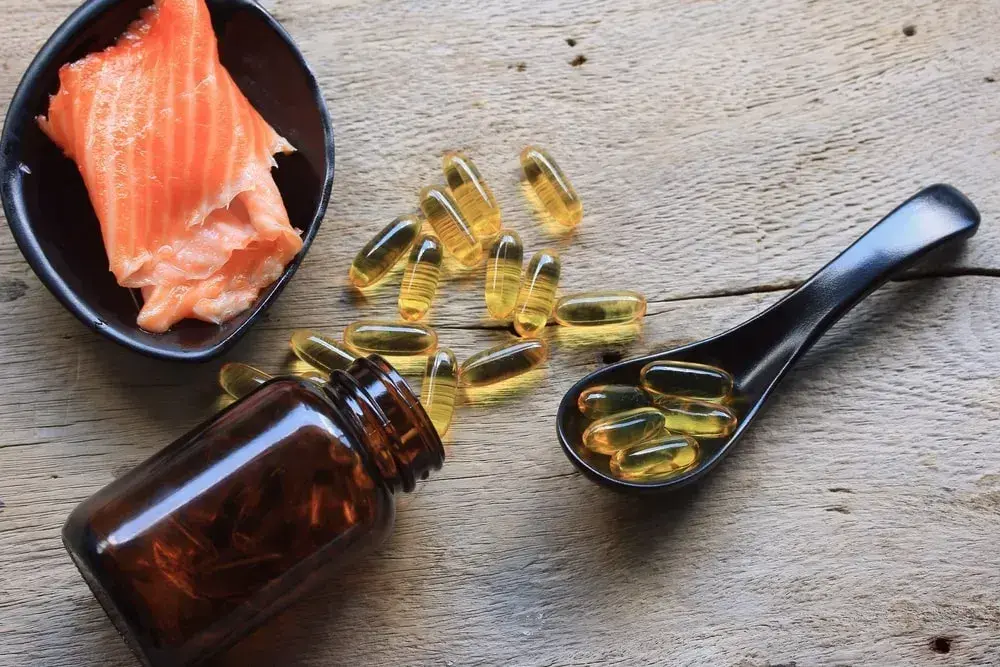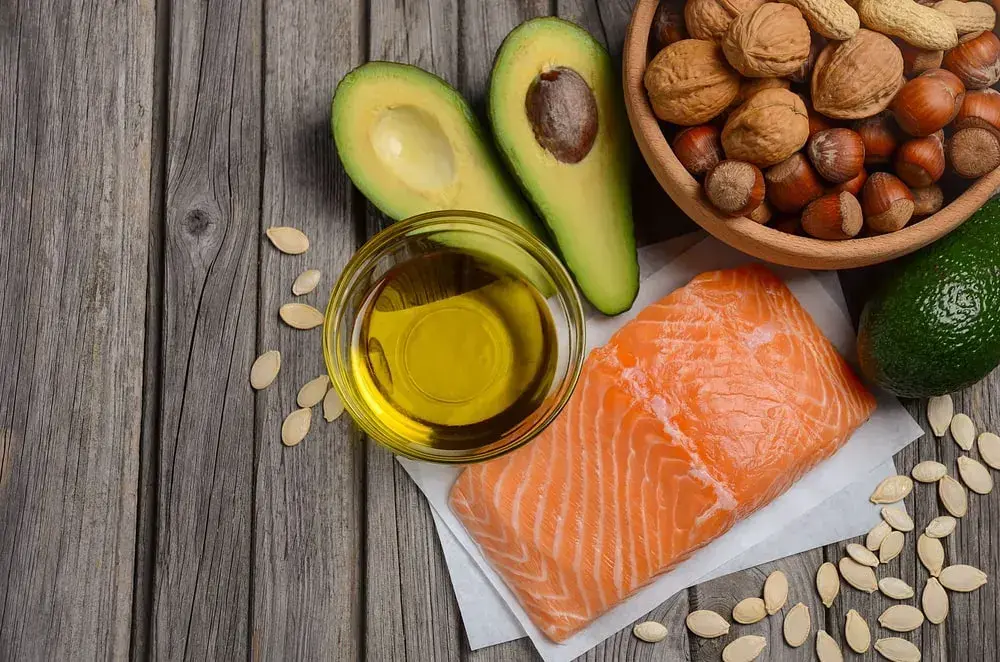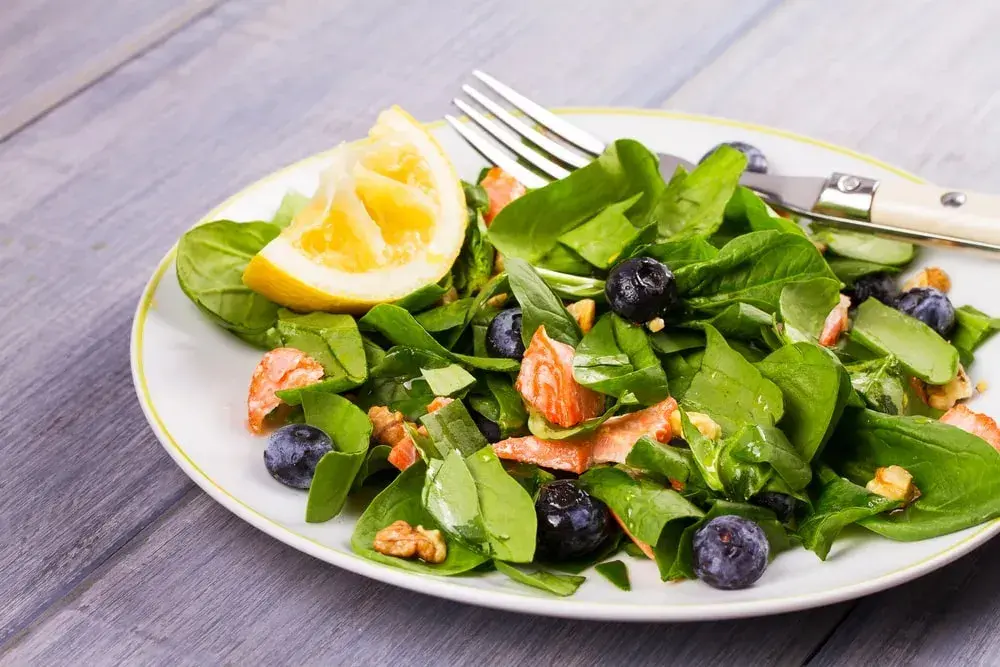
/assets/images/provider/photos/2580027.jpg)
There’s a reason super low-fat diets aren’t good for you. Our bodies actually need fats to function properly. They should make up at least 10% of our diets. It depends on the person; some people thrive on 10% while others need 20-35%. Unfortunately, the average American diet is much too high in fat – and not the good kind.
So What’s The Difference?
There are two primary groups of fats: saturated and unsaturated. In a nutshell, saturated fats are the bad guys and unsaturated fats are the good guys.
Saturated Fats
Saturated fats, the bad guys, should be eaten in tight moderation. In fact, the less the better. They are found in animal products – meat, dairy, eggs – and are solid when chilled. Have you ever put a meat dish in the fridge and found it covered in hard white stuff the next day? That’s saturated fat, and there’s a reason it’s so notorious for clogging up the arteries.
A specific type of saturated fat, trans fat, should be avoided at all costs. These are listed on ingredient lists as ‘partially hydrogenated’ oils. This type of fat is artificially made in food manufacturing and is used extensively in fried foods (chips), baked goods (frostings, cakes, cookies), packaged snack foods, microwave popcorn, and margarine. Even a small amount of trans fat raises the risk of heart disease. Not only does it increase bad cholesterol levels, but it also decreases good cholesterol levels; so your body can’t filter it out.
Unsaturated Fats
Unsaturated fats include poly and mono-unsaturated fats. When eaten in moderation, they help lower cholesterol levels. Lower cholesterol levels mean a lower risk of heart disease and stroke. These fats are found in plant foods. Certain kinds of fatty fish (salmon, trout, catfish, mackerel) contains omega fatty acids, which are a type of unsaturated fat. Omegas are an important part of a healthy diet and may reduce the risk of heart disease.
The Fat & Cholesterol Conundrum
A healthy diet consists of a modest amount of unsaturated fats, as well as very moderated amounts of saturated fat. What’s the risk of getting too much of the bad kind? Well, it will increase the levels of bad cholesterol in the body.
There are two kinds of cholesterol in the body. Low-density lipoprotein (LDL) is known as the bad guy and high-density lipoprotein (HDL) is the good guy. High levels of LDL play a huge role in cardiovascular disease, diabetes, cancer, obesity, and other chronic diseases.
What Does Cholesterol Do?
It’s found in each and every cell of the body. It’s used to produce hormones, vitamin D, and enzymes that digest food. Too much cholesterol in the bloodstream mixes with other blood components to form plaque. Plaque builds up in the arteries and sticks to the walls. This buildup is called atherosclerosis, which can eventually lead to coronary artery disease if it narrows and blocks the arteries.
Plants are incapable of producing cholesterol. This means that you can only find it in animal products. In fact, the body produces all the cholesterol it needs, making dietary cholesterol a tricky subject. Our bodies don’t need animal fats; they don’t need to be consuming cholesterol at all. However, for those who won’t eliminate animal products from their diets, moderation is key.
The Bottom Line
Moderation, moderation, moderation! You don’t need to go vegan to keep your cholesterol in check. Make sure the majority of your diet comes from plant foods, such as vegetables, fruits, whole grains, and complex carbohydrates. Stick to lean proteins like poultry and fish (fatty fish are okay, as they contain healthy omegas). Nuts, seeds, and legumes are great plant-based sources of healthy fats. Most importantly, reduce your intake of red meats and processed foods. Ultimately, this decision is for your health.


